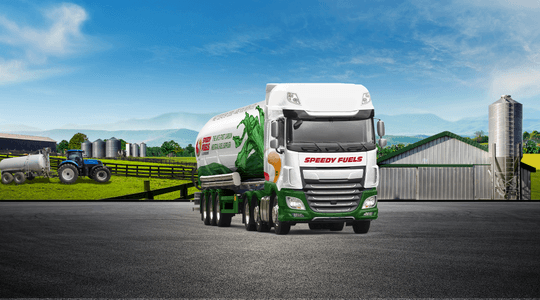There’s a silent but deadly machinery and equipment killer out there. The more that appear, the worse the problem gets. They can only be seen under a microscope as they are invisible to the naked eye and they can only be treated by regular fuel analysis. What are they?

Diesel bugs
It’s a scary thought that our machinery, equipment and vehicles can be destroyed by something so trivial as diesel bug. With the FAME content in fuels on a constant rise in addition to the ever-reducing presence of sulphur levels, the likelihood of fuel contamination is now higher than ever.
But don’t worry, regular fuel checks can combat the culprits and instead save you having to fork out unnecessary money and time.
What is fuel analysis?
Fuel testing is a process used to distinguish the quality and condition of the fuel in storage as part of a fuel polishing service. A sample is taken from the storage tank and sent to a lab for analysis to produce a report that indicates the level of contamination.
Negligible – this means there is a low level of microbes detected. This isn’t something to worry about but it’s even more important to keep an eye on its condition to ensure it doesn’t get worse.
Moderate – there is a fair level of microbes which is damaging to equipment and machinery, therefore some form of treatment is necessary, such as fuel polishing.
Heavy – there’s a large volume of microbes found which poses a great threat. This level is most likely to be unsalvageable, so a fuel uplift may be required.
What to do if your fuel is contaminated
Contaminated diesel will degrade over time and cause faults in your machinery or even worse, break it completely. This can cause big business problems, such as downtime and huge costs to rectify. Keeping on top of the quality of your fuel has never been so important.
Different solutions can be used depending on what grade your fuel contamination is at. If there are a small number of bugs, a simple biocide treatment may suffice, however if there’s a heavy amount discovered, fuel polishing or even a fuel uplift service may be required which is the most expensive option.
What is fuel polishing?
Fuel polishing is an intensive but non-disruptive service to restore your fuel back to perfection. When moderate levels of contamination are detected, fuel can be polished and dosed with a biocide/additive. This process is cheaper, better for the environment and means less waste. The service doesn’t have to interrupt your operations as it connects to your fuel system in a parallel fashion so your fuel can still function whilst being polished.

What is fuel uplift?
When the level of contamination is too high, the fuel can no longer be used as it will damage equipment and machinery and ultimately lead to downtime. When carrying out a fuel uplift, we assess the condition of the fuel and endeavour to recycle as much of it as possible to be recycled and reused within the industry. If feasible, we can provide you with a price to have your waste fuel uplifted. What’s more, we can then deliver a fresh batch of fuel to your fuel tank.
Tank cleaning
If a heavy amount of contamination is detected, we will need to carry out a full manual tank clean. Tank cleaning varies depending on the quality of your fuel which will be determined during the fuel analysis, from man entry to advanced automatic tank cleaning.
Fuel analysis in winter
The cold temperatures mean that your fuel is more likely to become contaminated with diesel bugs and water. What’s more, contamination spreads faster in winter.
Having regular checks on your fuel throughout the year will make you aware of any issues before they become a big problem. That way, you’ll have peace of mind that your fuel quality is good enough to ensure full uptime of equipment and machinery all year round. Proactivity over reactivity every time.
If you suspect your fuel may be contaminated or would simply like peace of mind, you can discuss your concerns with one of our waste fuel experts by giving us a call today on 0330 123 3773 to learn more and get your questions answered.

